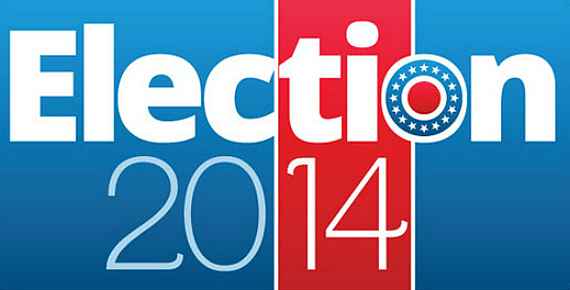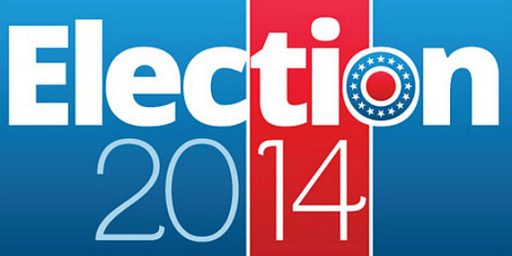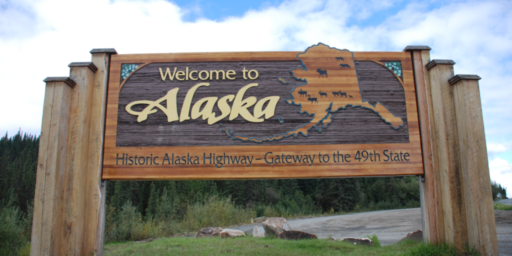Establishment Backed Candidate Wins Alaska GOP Senate Primary
The last of the real battles of the 2014 primary Senate ended last night in Alaska with former State Attorney General Dan Sullivan beating Tea Party backed candidate, and 2010 Senate nominee, Joe Miller and Lt. Governor Mead Treadwell in what had been a tight three way race for much of the summer:
FAIRBANKS, Alaska — A Republican former state attorney general, Dan Sullivan, defeated two challengers in Tuesday’s primary election here, including a candidate supported by the Tea Party, and will face the Democratic Senator Mark Begich in November in a closely watched race that could determine which party controls the Senate.
Mr. Sullivan, 49, was backed by national political groups that ran ads attacking Mr. Begich and mostly ignoring the other contenders in the primary race: Joe Miller, a Tea Party favorite who came in second, and the state’s lieutenant governor, Mead Treadwell, who came in a distant third.
Mr. Begich’s outside backers in turn mostly went after Mr. Sullivan, with a combined exchange of salvos that set the template – in acrid arguments and copious dollars – for the battle now heading toward the general election in November.
With most of the votes counted, Mr. Sullivan had about 40 percent of the ballots cast, to 32 percent for Mr. Miller and 25 percent for Mr. Treadwell, who conceded a few hours after the polls closed. Mr. Miller won the Senate primary in 2010 against Senator Lisa Murkowski but lost to her in the general election after she ran a write-in campaign.
Mr. Sullivan ran as a military man – he is a lieutenant colonel in the Marine Corps reserves – and on a promise to defend Alaskans against “Obama Administration overreach.” He painted Mr. Begich as a faithful backer of the president, which to many Alaskans is no small slur.
Mr. Begich, 52, a former mayor of Anchorage who was elected to a first term in 2008, emphasized his Alaskan roots, being born to a family that arrived before statehood in 1959. He also courted Alaska Natives, who tend to support Democrats; urban voters in Anchorage, Alaska’s largest city; and women. A recent television ad attacked Mr. Sullivan and Mr. Treadwell for their opposition to abortion rights, which is a powerful issue in Alaska, a conservative but politically complex state where government is often considered the enemy, whether in the bedroom or in the boardroom.
Miller actually ended up performing better than expected. Polling in advance of yesterday’s primary has shown him behind both Sullivan and Treadwell in third place. This will likely renew speculation about whether Miller would run a third-party or independent campaign in the General Election. Last week, Miller ruled out such an idea in an Associated Press interview, but its unclear if this better than anticipated showing in the primary might change the calculus for him. As for the General Election, current polling has shown Begich with a slight lead over Sullivan, but that may change now that Republican voters are likely to unite behind a single candidate. That being said, as Alex Roraty notes at National Journal, beating Mark Begich is going to be much tougher than Republicans might think:
[F]ew Republicans, even some Sullivan allies, expressed confidence that the GOP nominee will hold up well in a one-on-one comparison with the one-term senator. In unusually candid interviews, many of the state’s GOP operatives said that Begich—a former mayor of the state’s largest city, Anchorage, and the son of a congressman—has proven the better the candidate thus far. Many analysts have praised not just Begich’s outreach to local Alaska voting blocs but his early TV ads, one of which recalled the death of his father, who was killed in a plane crash while in office.
Many Democrats consider Begich, along with Sen. Mark Pryor in Arkansas, to be running the best campaign of any Democratic incumbent up for re-election.
“Begich is someone who has run for office a dozen times and learned how to run and how to run effectively, and that’s his asset,” said Mark Hellenthal, a Republican strategist based in Anchorage. “He lives and breathes politics. He’s got a team that’s tried and true, they’ve gone through many elections with him. He would be a good campaign manager if he wasn’t the candidate.”
Hellenthal added, “None of those statements are true of Sullivan.”
Sullivan has held only two state offices—Alaska’s attorney general and later the Department of Natural Resources commissioner—and both came to the first-time candidate by gubernatorial appointment. That means the Ohio native wasn’t able to establish authenticity as an Alaskan in previous campaign, and attacks from both parties on that issue in part explain why Sullivan struggled to win his GOP primary despite the backing of behemoths like the conservative Club for Growth and Karl Rove-backed American Crossroads. Sullivan won his primary, but with nearly all of the vote counted when the Associated Press called the race, Sullivan barely had more than 40 percent of the vote despite running against a pair of underfunded and lightly regarded opponents.
(…)
It’s hard to tell, empirically, where the race stands. Polling is notoriously difficult in Alaska, especially among the far-flung rural voters who could make or break the eventual victor, and what few surveys have been done there are largely seen as unreliable. But as Senate races across the country tighten, strategists from both parties agree that Begich has maintained a distinct advantage that Republicans now have just over two months to try to undo. As people from the state are fond of saying, Alaska is just different—at least for now.
This being Alaska, one would think that the advantage would be with the GOP, but Begich is proving himself to be a far better campaigner than many had anticipated. This will be a race to pay attention to.







Seems worth mentioning that the More Alaska Production Act was defeated — narrowly — after big oil spent millions defending it. Passed in 2013, it dramatically reduced the fees paid to Alaskans by the energy industry for selling the petroleum that does after all belong to Alaskans before it’s pumped out of the tundra.
@JohnMcC: Much of the oil, I suspect, is on federal land. So no, most of it probably does not belong to Alaskans. Where’s my cut?
@gVOR08: What an excellent question and I could bang my head on my keyboard (scattering decades worth of cheeto fragments no doubt) for not having thought of that before. First I heard of the Alaska-oil-pays-cash-to-Alaskans it was because Sarah! was governor when it was passed and claimed credit for it (which if she did push it through, good on her!).
Never thought that it was federal land. Doh!
Maybe spare time to allow some looking into this will appear.
Then we could really completely hijack this thread and take it so far off-topic we never get back to Atty Gen’l Sullivan.